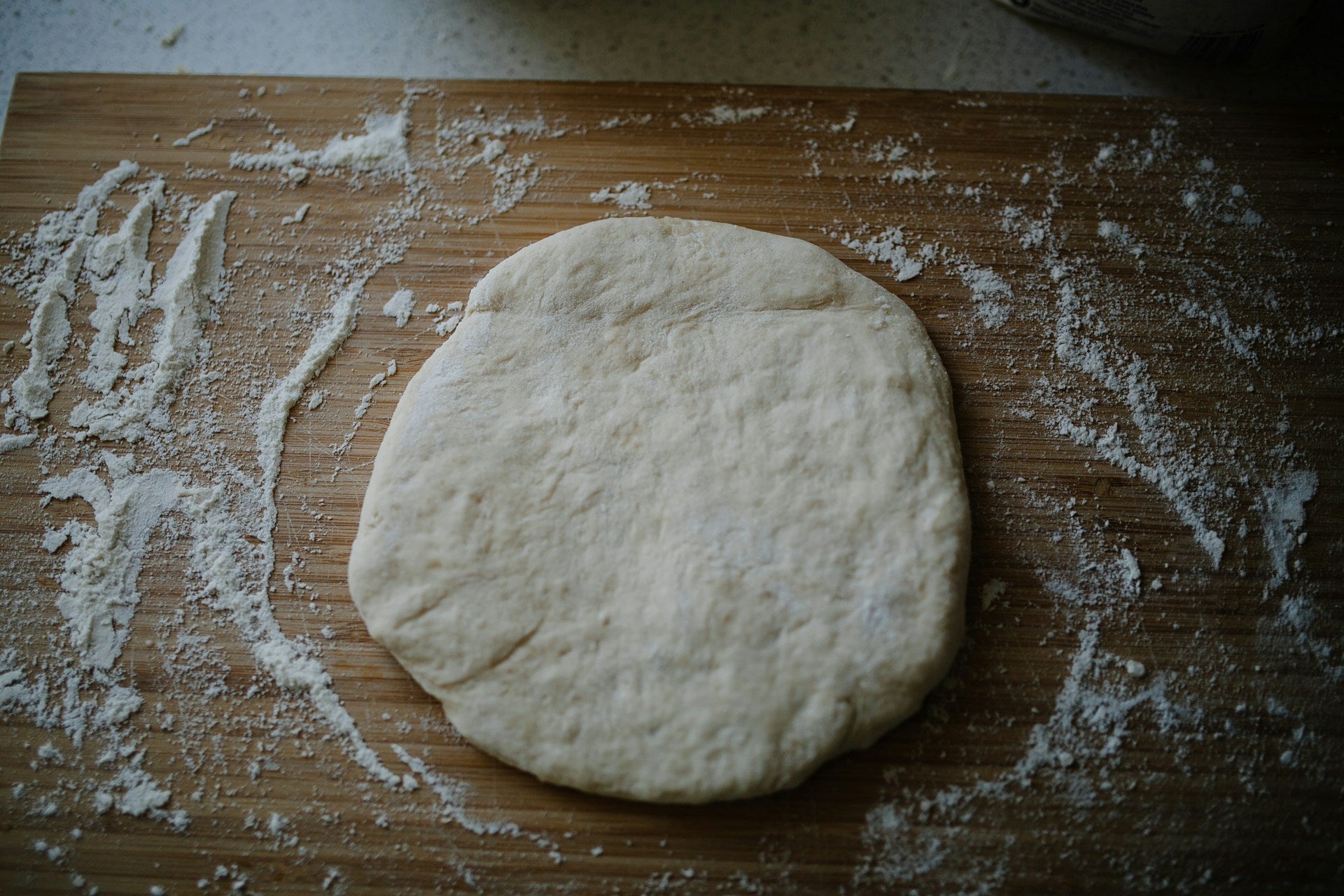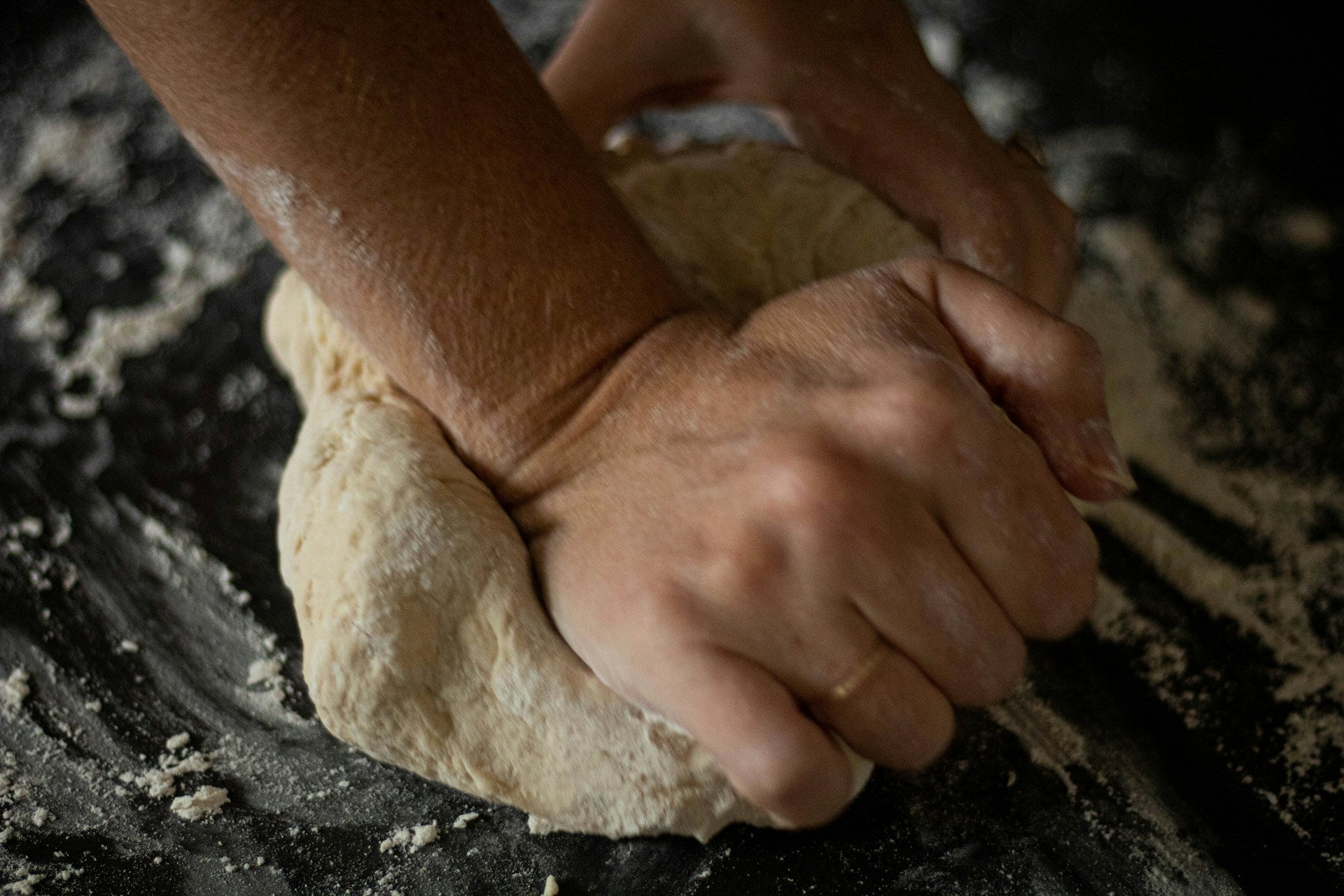
Pizza Dough Online: The Best Options for Home Bakers
Finding quality pizza dough online opens the door to creating delicious homemade pizzas with ease. You can enjoy authentic flavors and textures by choosing from a variety of options available for purchase, such as traditional New York-style dough or unique sourdough varieties. This convenience allows you to skip the tedious preparation and focus on crafting the perfect pizza.
When you buy pizza dough online, you'll discover numerous brands that offer pre-made, frozen, or fresh options tailored to suit different tastes. From classic Neapolitan dough to specialty blends that incorporate finer ingredients, you can easily find a product that meets your culinary needs. This range not only saves you time but also enhances your pizza-making experience.
Exploring these options can inspire creativity in the kitchen, whether you're preparing a weeknight dinner or hosting a gathering. With just a few clicks, you can have quality dough delivered right to your door, making pizza night an effortless and enjoyable occasion.
Essential Ingredients for Pizza Dough
When making pizza dough, certain ingredients are crucial for achieving the best texture and flavor. Understanding the roles of flour, yeast, water, and salt will help you create a superior crust.
Choosing the Right Flour
The flour you select impacts the dough's structure and flavor. Bread flour is often recommended for its high protein content, which contributes to gluten formation. This elasticity results in a chewy pizza crust.
All-purpose flour can also work, though it may yield a softer texture. If you prefer a more artisan-style crust, consider using "00" flour, which is finely milled and ideal for Neapolitan pizzas.
Key Types of Flour:
- Bread Flour: High protein, chewy texture.
- All-Purpose Flour: Versatile, softer crust.
- “00” Flour: Fine texture, great for artisan pizzas.
Yeast and Its Role
Yeast is critical for fermentation and leavening, giving your pizza dough its characteristic rise. Active dry yeast and instant yeast are the most common choices.
Active dry yeast must be dissolved in water before use, while instant yeast can be mixed directly with dry ingredients. Each type will cause the dough to rise, but instant yeast provides quicker results.
Important Points About Yeast:
- Active Dry Yeast: Needs activation with warm water.
- Instant Yeast: No activation needed, faster results.
Water and Salt Requirements
Water plays a vital role in hydrating the flour and activating the yeast. The temperature of the water is important; warm water around 110°F (43°C) is optimal for yeast activation.
Salt is also necessary, enhancing flavor and controlling fermentation speed. It helps strengthen the gluten structure, making the dough more manageable.
Water and Salt Guidelines:
- Water Temperature: 110°F (43°C) for optimal yeast activation.
- Salt: Typically 1-2% of the flour weight for flavor and gluten strength.
By focusing on these essential ingredients, you can create a pizza dough that meets your taste preferences and texture requirements.
Step-by-Step Pizza Dough Making Process
Creating a perfect pizza dough involves precise techniques in mixing, kneading, proofing, and shaping. Each stage is essential for developing the flavor and texture that makes pizza delightful.
Mixing and Kneading Techniques
Begin by gathering your ingredients: all-purpose flour, water, yeast, sugar, salt, and olive oil. In a mixing bowl, combine the warm water and yeast. Allow it to sit for about five minutes until it becomes foamy, indicating the yeast is active.
Next, mix in sugar and olive oil. Gradually add the flour and salt, stirring with a wooden spoon until a shaggy dough forms.
Once combined, transfer the dough to a floured surface. Knead for around 8-10 minutes. Use the heel of your hand to push the dough away, then fold it over itself. This process develops gluten, ensuring your crust is chewy and soft.
Proofing the Dough
After kneading, shape the dough into a ball and place it in a lightly oiled bowl. Cover it with a clean kitchen towel or plastic wrap. This helps retain moisture and warmth.
Allow the dough to proof in a warm location. A typical duration is about 1-2 hours or until it doubles in size. The yeast ferments the sugars, producing carbon dioxide. This gas creates air pockets, resulting in a light and airy texture.
Look for the dough to become puffy and to have increased in size. When ready, gently punch it down to release the air. This step prepares your dough for the next stage.
Shaping the Dough
Once the dough has proofed, it’s time to shape it. Start by transferring it to a floured surface. Divide it into portions if making multiple pizzas.
Using your fingers, gently stretch the dough outward from the center. Avoid using a rolling pin, as this can deflate the air pockets you've created. Instead, let gravity assist you, allowing the dough to hang and expand.
A typical pizza shape is round, but you can opt for a rectangular shape if desired. Ensure the edges are slightly thicker to create a crust. You are now ready to add your favorite toppings and bake your pizza to perfection.
Online Purchase of Pizza Dough
Purchasing pizza dough online provides convenience and access to a variety of options. By selecting the right provider and understanding product details, you can find the ideal dough for your culinary needs.
Choosing an Online Provider
When selecting an online provider for pizza dough, consider factors such as reputation, delivery options, and product variety. Look for well-established brands that offer detailed product information.
Make sure to check customer reviews. Websites like Farm to People deliver fresh local food, ensuring quality. Compare different suppliers to find those that offer special options like gluten-free or organic dough. Security is also crucial. Providers should have robust measures, like those from Imperva, to protect your information during transactions.
Understanding Product Descriptions
Product descriptions provide essential details about the dough you're considering. Pay attention to ingredients, as some may have specific dietary implications. For example, Neapolitan dough often includes imported Italian flour while others may contain olive oil or sugar.
Check weight and serving sizes too. You might find pre-portioned options, such as those offered by Ooni, which can simplify your meal prep.
Lastly, be mindful of expiration dates and storage recommendations to ensure the dough remains fresh. Understanding these details helps you make informed choices and enhances your pizza-making experience.
Preserving Pizza Dough
Properly preserving pizza dough is crucial to maintaining its quality and ensuring delicious results when you're ready to use it. Whether you plan to refrigerate or freeze, the right techniques can extend the dough's shelf life without sacrificing flavor or texture.
Refrigeration and Freezing Tips
To preserve pizza dough, refrigeration is an effective short-term solution. You can store your dough in the fridge for 24 to 72 hours. Just keep it tightly wrapped in plastic wrap or placed in an airtight container to prevent it from drying out.
If you're looking for a longer storage option, freezing is ideal. Wrap each dough ball in plastic wrap to protect it from freezer burn, and then place the wrapped balls in a freezer bag. Dough can be stored in the freezer for up to three months. For best results, use it within 90 days of freezing.
Remember to label the bags with the date to keep track of freshness.
Thawing and Reusing Stored Dough
Thawing your frozen pizza dough correctly is essential for achieving the best texture. Start by transferring the dough from the freezer to the refrigerator 24 hours before use. This slow thawing method preserves the dough’s flavor and allows it to rise gradually.
Once thawed, take the dough out of the refrigerator and let it sit at room temperature for about 30 minutes to 1 hour. This will help it become more pliable for stretching. If the dough feels too sticky, a light dusting of flour can help.
You can then use it as you normally would to make your pizzas. Ensure you allow it to rise adequately before shaping for optimal results.
Safe Digital Transactions
Ensuring safe digital transactions is crucial for a seamless online pizza dough purchase. You should prioritize recognizing secure payment systems and implementing measures to protect yourself against cybersecurity threats.
Recognizing Secure Payment Gateways
When shopping online, look for secure payment gateways. These gateways encrypt your financial data, significantly reducing the risk of fraud.
Key indicators of secure payment gateways include:
- HTTPS: Check that the website URL starts with "https://" indicating a secure connection.
- Lock Icon: Observe a padlock icon in the address bar, which signifies a secure site.
- Reputable Providers: Use well-known payment processors like PayPal, Stripe, or Authorize.net. They have strict security measures in place.
Always avoid entering your payment information on sites that lack these security features. Doing so helps protect against potential malware infections that can compromise your financial safety.
Protection Against Cyber Threats
Cybersecurity threats like malware can jeopardize your online transactions. Implementing protective measures is essential.
Consider the following strategies:
- Regular Malware Scans: Use antivirus software to conduct routine malware scans on your devices. This can help detect and remove malicious software before it becomes a problem.
- Security Checks: Utilize services that offer vulnerability assessments. Tools from companies like Imperva can identify potential weaknesses in your connection.
- Strong Passwords: Create unique, complex passwords for your online accounts. Avoid reusing passwords across different sites to limit risk exposure.
Taking these precautions can help you navigate online transactions safely, ensuring your information remains secure.
Frequently Asked Questions
When purchasing pizza dough online, you should consider several factors, including quality, convenience, and the variety of options available. Below are some specific questions and answers that can help guide your decisions.
What are the top-rated sources for purchasing pizza dough online?
Some of the most highly recommended online retailers for pizza dough include specialty food websites, grocery delivery services, and dedicated pizza dough companies. Look for vendors with positive reviews and quality assurance guarantees to ensure a satisfactory purchase.
How does one choose the best premade pizza dough from an online retailer?
To select the best premade pizza dough, pay attention to the ingredients list, freshness, and packaging. Brands that offer organic or natural ingredients are often preferred. Additionally, check customer reviews for taste and texture experiences.
Where can one find high-quality frozen pizza dough balls?
Many grocery stores offer frozen pizza dough balls, but online marketplaces like local food delivery services or specialized pizza product vendors are also excellent sources. Look for products from reputable brands that focus on quality and freshness.
How much pizza dough is needed to make a standard size pizza?
Typically, a standard 12-inch pizza requires about 1 pound of pizza dough. If you're making larger pizzas or deep-dish styles, you may need additional dough. Check specific recipes for precise measurements.
Which supermarkets offer the best pizza dough options?
Major supermarkets like Costco, Whole Foods, and Trader Joe's usually provide a variety of fresh and frozen pizza dough options. These stores often carry different styles, including traditional, gluten-free, and whole grain.
Can you get restaurant-grade ready-made pizza dough delivered?
Yes, many online food service providers offer restaurant-grade ready-made pizza dough for delivery. Look for vendors that supply to restaurants or pizzerias, as they typically maintain higher quality standards.

















